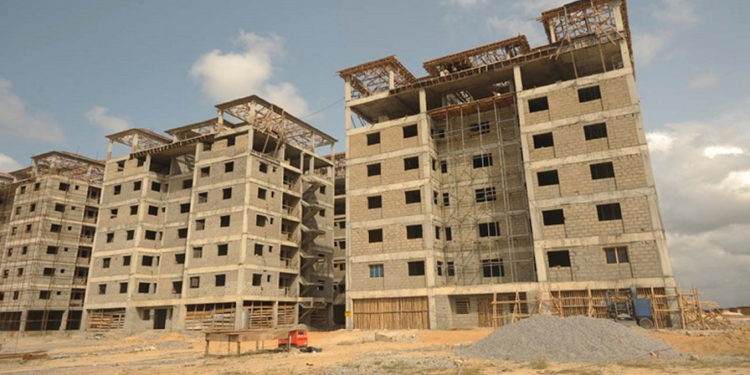There has been discussion about the need for Nigeria’s economy to rebound. It should be highlighted, however, that Nigeria’s reliance on oil revenue has led to neglect of other important economic drivers.
Real estate is one such industry that has emerged as essential to stability and growth. Real Estate can Improve Nigeria’s economy through many ways some of which are Real Estate as an economic catalyst, Infrastructure development and urbanization, Job Creation and social impact, Hedge against Inflation and Capital Appreciation, Tourism and Hospitality, Foreign Direct Investment, Government Revenue Generation.
The Real Estate industry can bring about some positive changes, especially after high inflation or low economic growth. In Nigeria and many other countries, real estate is often considered the best long-term investment during periods of inflation.
The government should give top priority to policies that support sustainable urban growth. Making it easier for developers and homebuyers to get financing and enhancing the ease of doing business in the real estate sector. This will help the country fully realize real estate’s promise as a tool for Nigeria’s economic recovery.
Ways To Leverage Real Estate for the Growth of Nigeria’s Economy
Real Estate as an Economic Catalyst:
Through promoting industries like construction, infrastructure development, and employment generation, real estate investment plays a critical role in promoting economic growth. In Nigeria, the real estate industry plays a significant role in creating jobs, making a significant contribution to the GDP.
According to data from the Nigerian Bureau of Statistics (NBS), the real estate sector contributed approximately 6.60% to Nigeria’s GDP in Q4 2023, witnessing a notable increase from 6.18% in the previous year. This growth underscores the sector’s resilience and its potential to significantly influence the trajectory of the country’s economic recovery. Furthermore, real estate investment serves as a hedge against inflation and currency depreciation, providing stability for investors in volatile economic conditions.
Infrastructure Development and Urbanization:
Real estate investment is a major factor in the development of infrastructure. In areas where there is demand for residential, commercial, and industrial space, Real Estate plays a major role. Improved roads, utilities, and public facilities increase property values and draw in new investment, which promotes economic growth.
In 2022, the share of urban population in Nigeria remained nearly unchanged at around 53.52%. Nevertheless, 2022 still represents a peak in the share in Nigeria with 53.52%. This trend underscores the growing demand for housing and commercial spaces, presenting lucrative opportunities for real estate investors and developers to capitalize on.
Job Creation and Social Impact:
The real estate sector serves as a major employer, offering job opportunities across various skill levels, ranging from construction workers to architects, engineers, and property managers.
Real estate generates ripple effects across related industries such as manufacturing, finance, and retail. It thereby creates additional employment opportunities and fosters socio-economic development within communities.
Hedge against inflation and Capital Appreciation:
Typically, real estate has been thought of as a kind of asset with potential for long-term growth and relative stability. Investors can benefit from renter’s income and capital growth, which can help them accumulate wealth over time. As a hedge against inflation, Real estate holdings’ value may increase in lockstep with rising costs for goods and services. As a result, real estate should be used as the primary example and a less volatile asset or stock when teaching Nigerians about long-term investing.
Tourism and Hospitality:
The expansion of the Nigerian tourism industry is aided by real estate development in these fields. Included in this is the building of hotels, resorts, and recreational facilities, all of which generate employment and encourage local infrastructure (such as utilities and transportation) to meet visitors’ demands.
In the upcoming years, there is anticipated to be a notable increase in revenue for Nigeria’s travel and tourism industry. The market is anticipated to increase at a rate of 3.96% per year, with a projected volume of US$3,896.00 million by 2028. By 2024, the projected revenue is likely to reach US$3,336.00 million. The hotels market, which is expected to reach a market volume of US$1,516.00m in 2024, is the largest market in Nigeria.
Foreign Direct Investment (FDI):
International investors are drawn to a stable and thriving real estate sector in the hopes of capitalizing on the growing real estate market. Foreign direct investment (FDI) provides a further boost to the real estate sector and adjacent businesses by inflowing capital, fostering economic growth, and facilitating economic growth.
Government Revenue Generation:
Property-related taxes and real estate transactions both help the government generate revenue. Tax revenue from real estate transactions and related activities rises as the real estate sector expands, funding public services and infrastructure.
Governments in localities can rely on property taxes as a reliable and constant source of funding. The upkeep and enhancement of infrastructure and public services funded in part by these revenues can raise an area’s value as a real estate investment destination.
The Nigerian real estate market has a lot of potential, but it also faces a lot of obstacles, such as poor infrastructure, expensive regulations, problems with land tenure, and difficult financing access. The government, business community, and other stakeholders must work together to address these issues to foster investment and sustainable development.
Moreover, emerging trends such as green building initiatives, affordable housing schemes, and innovative financing models present opportunities for investors to align their investments with sustainable development goals while maximizing returns. By embracing these opportunities and overcoming existing challenges, the real estate sector can play a pivotal role in Nigeria’s economic recovery and long-term prosperity.
As Nigeria navigates its path towards recovery and sustainable development, strategic investment in real estate will remain instrumental in building resilient, inclusive, and vibrant communities that propel the nation towards a brighter future.
Nairametrics


































